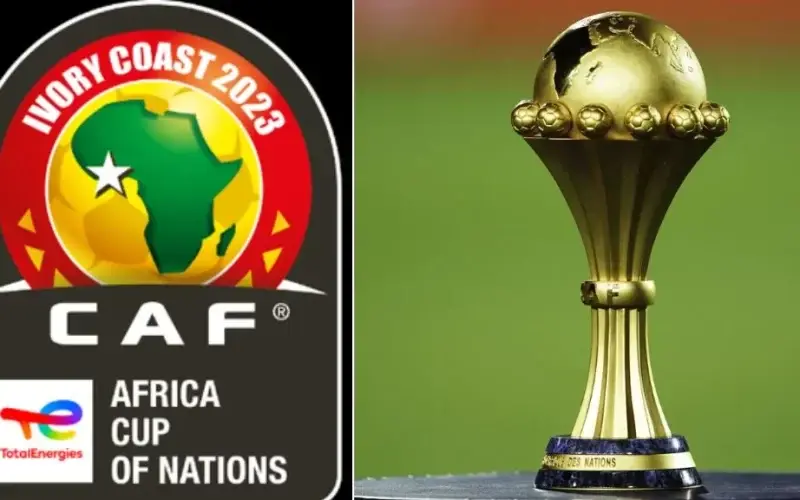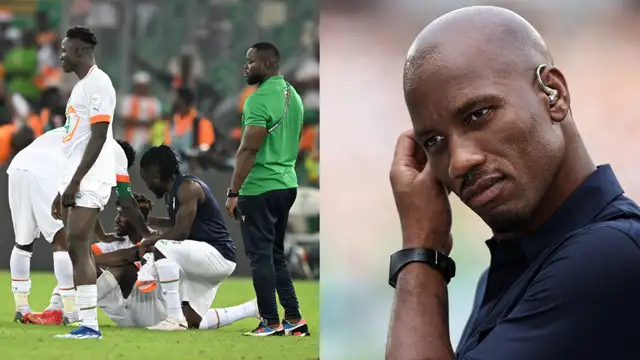A shipwreck, a disaster, a humiliation: In front of its home crowd, Ivory Coast was soundly beaten by Equatorial Guinea (4-0) on Monday, January 22, in Abidjan.
It was the final group match at the Africa Cup of Nations (AFCON) and it may just be their last game in the tournament.

This crushing defeat could deprive the host country a place in the last 16 of “their” competition.
If this happens, it would be reliving the nightmare of the last AFCON it organised, 40 years ago.
It’s not quite all over yet for the Elephants, who still have a slim chance of progressing.
The Ivorians, currently third in Group A with three points, must hope to finish among the four best third-placed teams, which seems unlikely given their negative goal difference (-3).
They will have to wait until the end of the group matches on Wednesday for their fate to be sealed.
Lamentations
Many fans made no secret of their frustration.
“I’m extremely disappointed,” lamented Yann Akoun, one of the spectators who had taken his place at the Stade Alassane-Ouattara in Ebimpé.
“We wanted to be proud, but tonight we’re ashamed.
“This AFCON has great facilities and a really great atmosphere.
“But our team isn’t up to the challenge.
“This defeat is unforgivable,” said Armel Sialou, his orange jersey draped over his shoulders.
Many were pointing the finger at the tactical choices made by Jean-Louis Gasset, the Ivorians’ French coach who, at 70, was making his debut at the helm of an African side.
On the score sheet, Gasset had made four changes to his starting 11 compared to the previous match, notably giving Oumar Diakité a chance on the right.
“But it’s fake coaching!” insisted Youssouf Dosso.
“Our team deserves better than this sad spectacle,” complained Odile Kouao.
“This coach is out of touch with our realities.”
Scuffles broke out as soon as the final whistle blew.
Advertising hoardings bearing the players’ likenesses were smashed and several buses pelted with stones.
In downtown Abidjan, supporters also headed for the Ivorian Football Federation (FIF) headquarters in the Treichville district and the Maison Palmier, a luxury hotel in the Cocody district, where the players were staying.
By 8:00 p.m., the area had to be cordoned off by the police.
Regret
Ivory Coast has plenty of reasons for regret.
They often dominated but lacked inspiration in midfield and realism in attack.
Although they dominated the first half, it was Equatorial Guinea, leading the group with seven points, who opened the scoring on one of their only forays into the opposition camp.
The second half was a festival of chances for the Elephants.
But after a second goal was disallowed for offside, the Ivorians fell victim to Equatorial Guinea’s formidable efficiency.
At the beginning of the tournament, everything started well for the host country.
In the opening match on January 13, the Elephants opened the scoring against Guinea-Bissau in the 4th minute.
After a second goal, the Ivorian people believed them as incredibly powerful, perhaps even invincible. But the triumph was a sham.
On Thursday, against Nigeria, the Elephants were all at sea.
These pachyderms had neither breath nor inspiration.
In front of 50,000 ecstatic fans, they went down 1-0.
At the time, Gasset lamented Nigeria’s “refusal to engage” and acknowledged that his players had “not given the impression of being able to compete physically.” The match against Equatorial Guinea confirmed this.
Bitter Pill
An elimination at this level of the competition would be as much a sporting failure as a political one.
The government bet high on this event: €1.37 billion was invested to build or renovate six stadiums, build bridges, roads, hotels and the so-called “AFCON cities”.
Appointed in October, just three months before the start of the competition, Prime Minister Robert Beugré Mambé was entrusted with the mission of organising “the most beautiful AFCON in history,” according to President Alassane Ouattara.
The results may prove to be a bitter pill to swallow.
“We didn’t have the team we needed,” said a distraught Amadou Koné, the transport minister and mayor of Bouaké, one of the AFCON host cities.
“Very few people saw this team taking the cup.
“But we thought that with the public fervor, they would have had the support to outdo themselves.
“We could have won 5-0,” said a close friend of Ouattara.
“But that’s life. Giving up is not in our nature.”
Read more: AFCON Host Ivory Coast Thrashed Out Of Tournament
However, with its high standard of play, there have been no 0-0 draws so far – and almost flawless organisation, the 34th Africa Cup of Nations is far from over.
But after this “nightmare match,” as Gasset repeated, it may not feel the same.
Indeed, if the host nation’s team is eliminated, the tournament risks losing some of its magic and its sweet orange flavour.
2023 AFCON: How Nigeria Players Are Parading The Best Attacking Side In The Game

